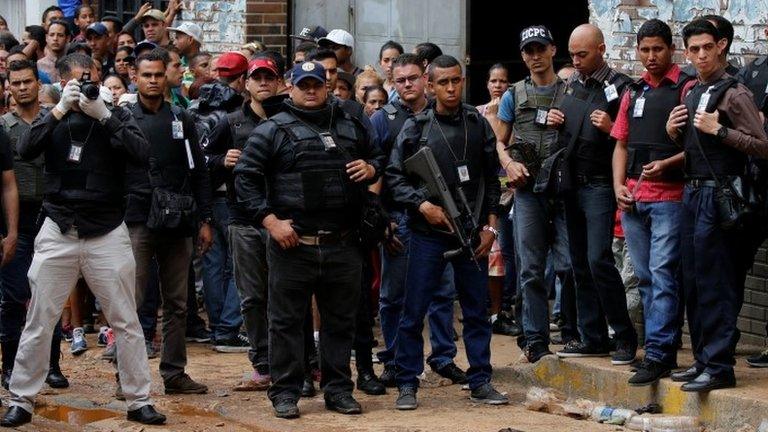Venezuela to withdraw from OAS as deadly protests continue
- Published
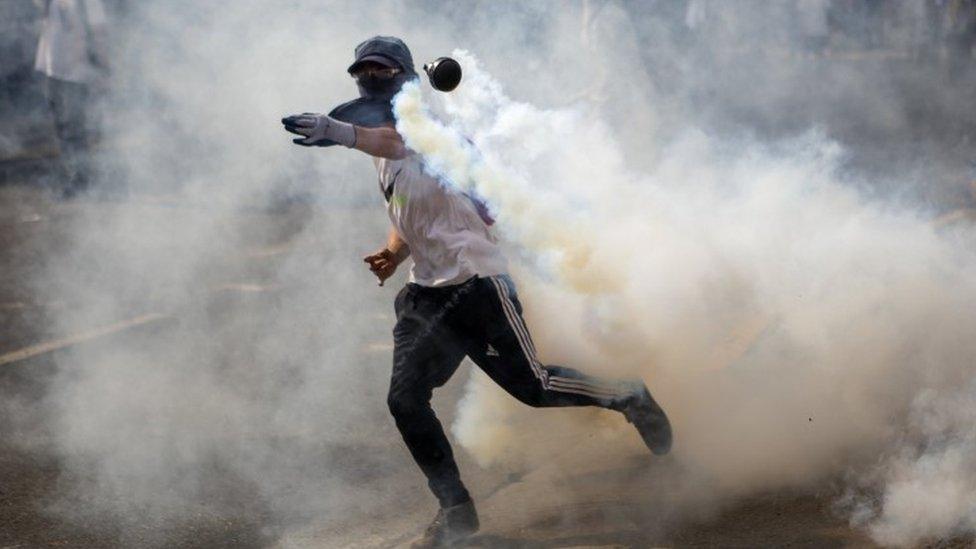
Anti-government protesters in Caracas on Wednesday were met with tear gas and rubber bullets
Venezuela says it will withdraw from the Organization of American States (OAS), accusing the US-based grouping of meddling in its internal affairs.
The government made the announcement after the OAS voted to hold a meeting of foreign ministers to discuss the spiralling crisis in Venezuela.
Neighbours have expressed concern at mounting unrest in the country.
Violent protests against the government continued in the capital Caracas on Wednesday, with one protester killed.
He was hit by a tear gas canister during clashes with police.
Nearly 30 people have been killed since the wave of protests against President Nicolas Maduro began last month.
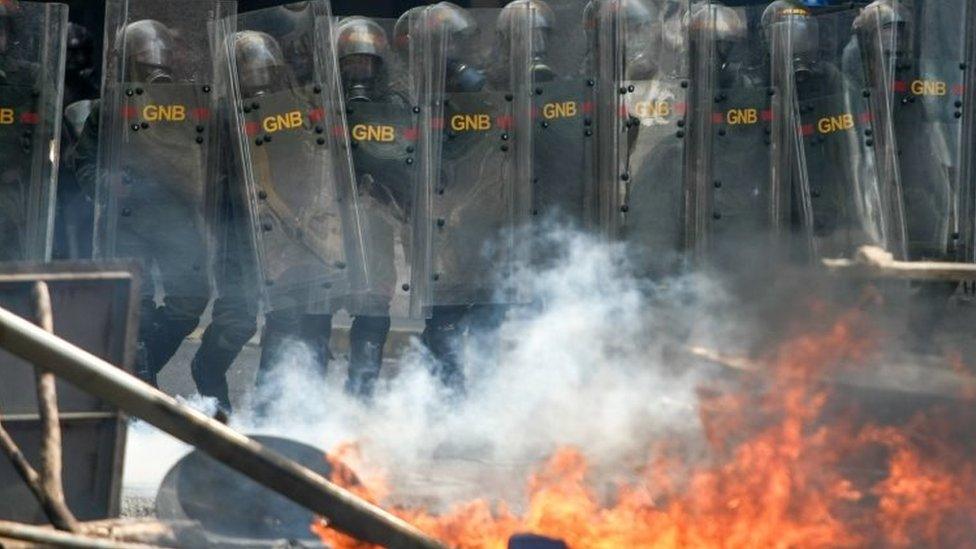
The security forces were faced with stone throwers and petrol bombs
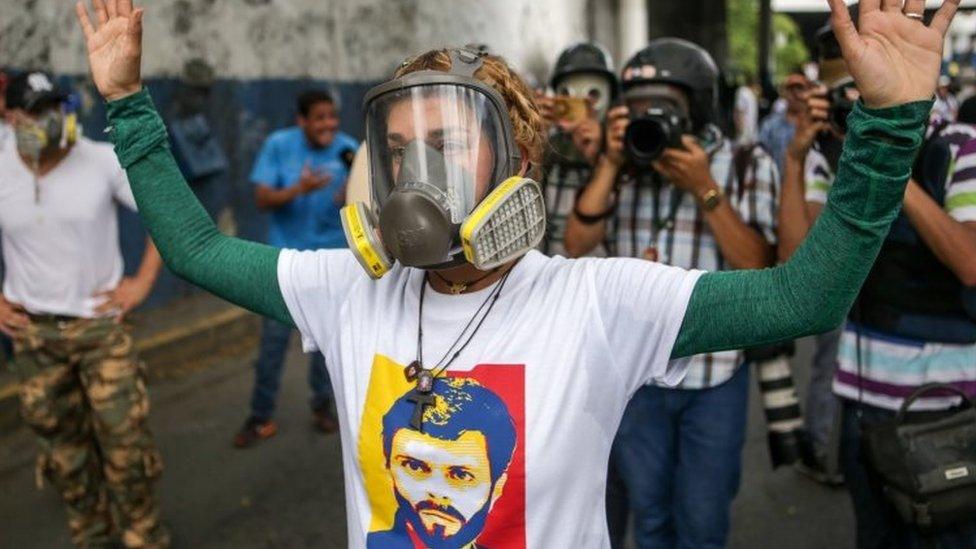
Lilian Tintori (above), the wife of opposition leader Leopoldo Lopez, participated in Wednesday's protests
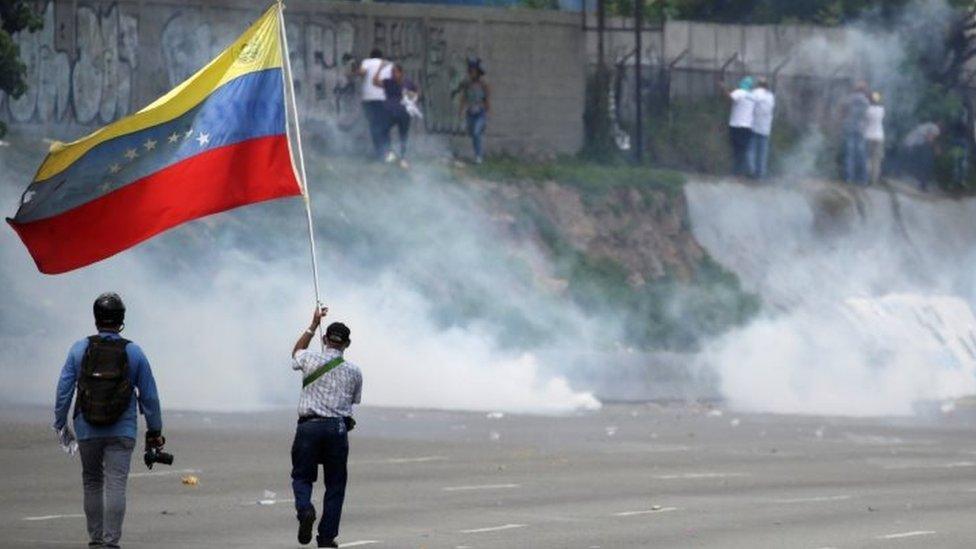
The opposition wants early elections and the release of politicians arrested since the president took office in 2013
The Venezuelan government has accused the US of trying to undermine Mr Maduro's Socialist Party.
On Wednesday, Ms Rodriguez said the protests were part of an organised effort to defeat Venezuela's Bolivarian Revolution.
"Tomorrow [Thursday] we will present a letter of complaint to the OAS and we will begin a process that will take 24 months," she announced in a televised statement.

OAS
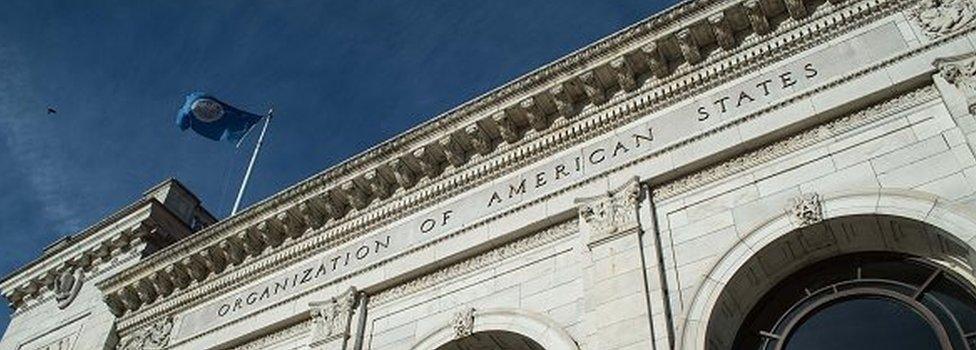
The OAS headquarters are in Washington DC
Founded in 1948 as a body to promote regional solidarity and co-operation
Has 34 participating member states in the Caribbean and North, Central and South America
Current secretary general is Uruguayan former Foreign Minister Luis Almagro

BBC Latin America correspondent Will Grant says the move comes as little surprise.
Tensions in the organisation - and among Venezuela's neighbours - have grown over what is seen by several member states as the government's disregard for democracy amid mounting unrest.

Venezuela OAS exit stirs regional concern, by BBC Monitoring
Venezuelan President Nicolas Maduro and allies hailed his 26 April decision to withdraw his country from the OAS as a "break with imperialism", but other OAS members worried the move would leave Venezuela isolated.
Uruguayan president Tabare Vasquez strove to find middle ground, saying "we do not think Venezuela should be isolated."
"It needs to be offered a hand," President Vasquez said.
Argentina's foreign minister, Susana Malcorra, tweeted that mediation was needed in Venezuela.
State media in Cuba, which was expelled from the OAS in 1962, highlighted President Maduro's denunciation of "interventionist abuses" by the organisation.

Ms Rodriguez accused the OAS of having double standards by concentrating on what was happening in her country while ignoring alleged democracy violations in Brazil.
President Maduro has often strongly denounced the grouping.
Economic meltdown
Venezuela, an oil-rich nation, is going through a serious economic crisis.
Inflation is expected to reach 700% this year, according to the International Monetary Fund, and there is shortage of many basic goods, including medicines.
The opposition blames the socialist policies of Mr Maduro and his predecessor, Hugo Chavez, for the economic meltdown.
But the government says the country is suffering from the effects of economic sabotage carried out by the business elite.
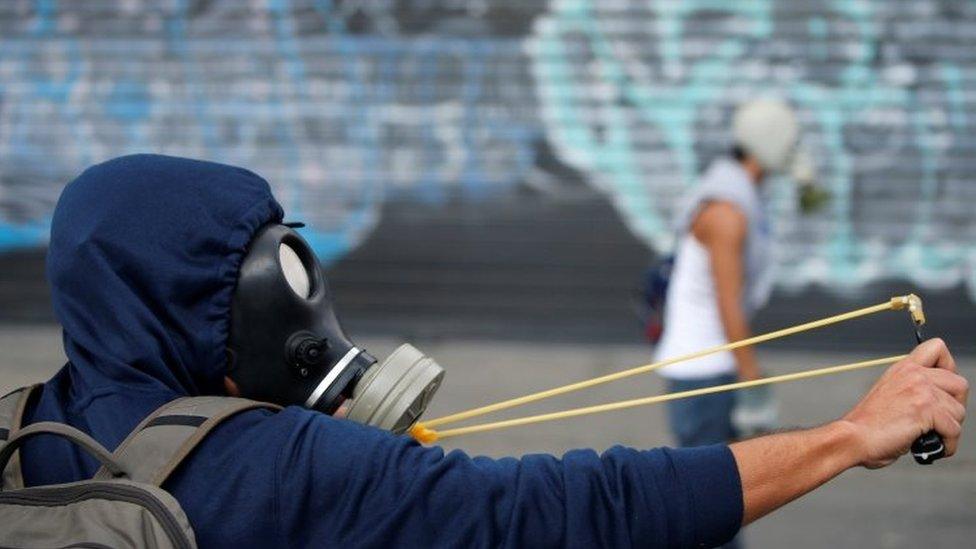
Some of the protesters on Wednesday used catapults to target the security forces
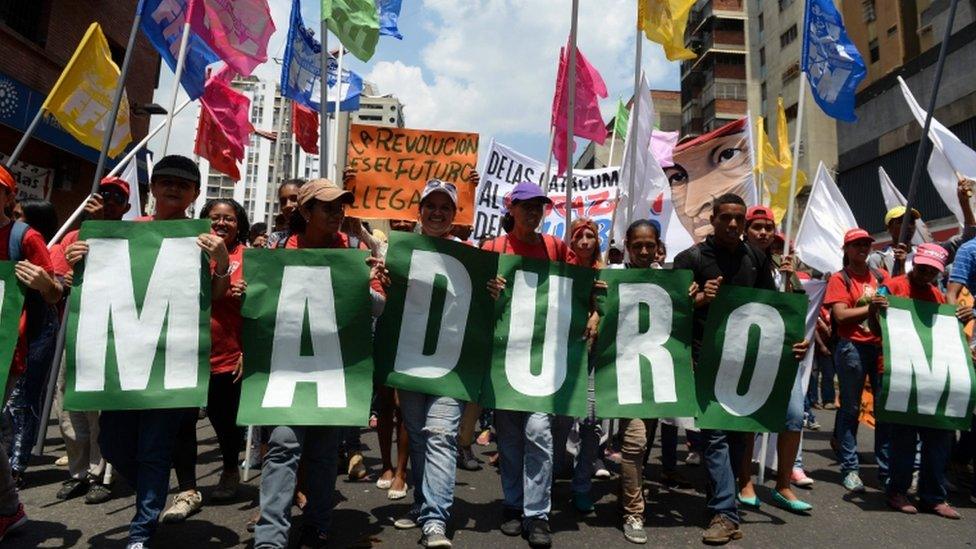
Government supporters also marching through the streets of Caracas on Wednesday
The latest series of protests began after the Supreme Court took over powers from the opposition-controlled National Assembly on 29 March.
It reversed its decision three days later, but opposition protesters were already on the streets in large numbers, seizing the opportunity to strike against Mr Maduro's government.
The opposition wants early elections and the release of politicians arrested since the president took office in 2013.
Thousands of his supporters held a counter-rally in Caracas on Wednesday.
- Published31 March 2017
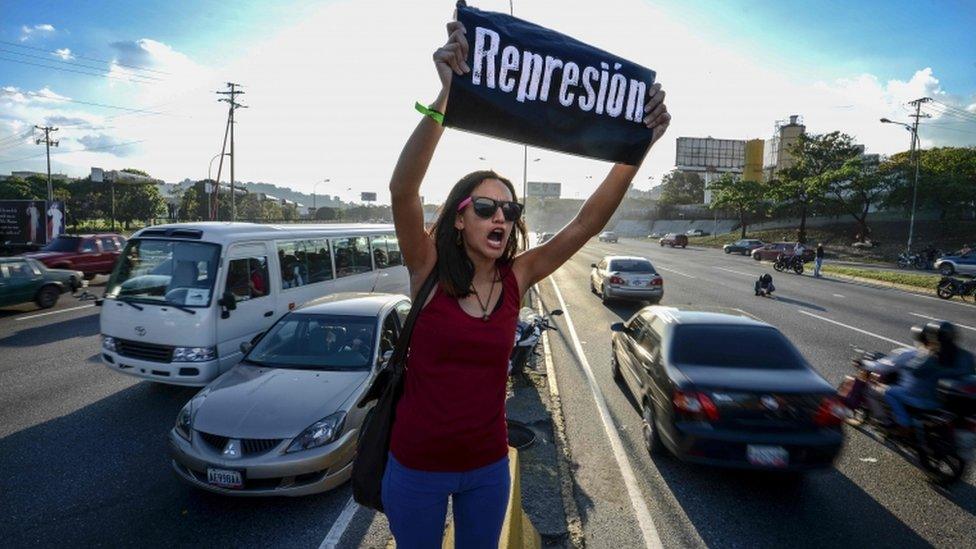
- Published1 June 2016
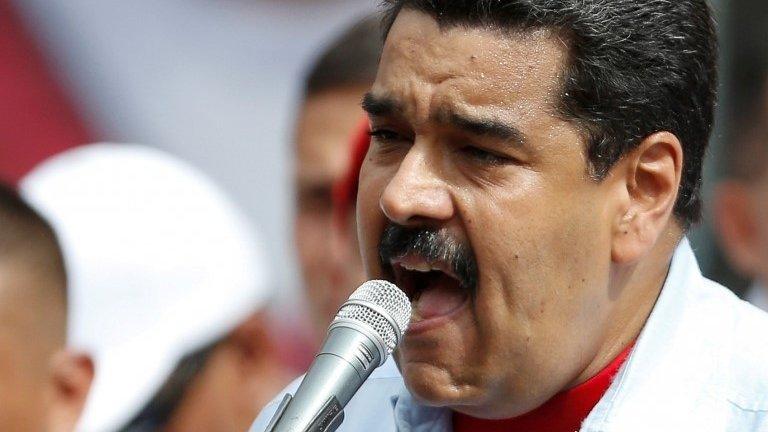
- Published25 April 2017
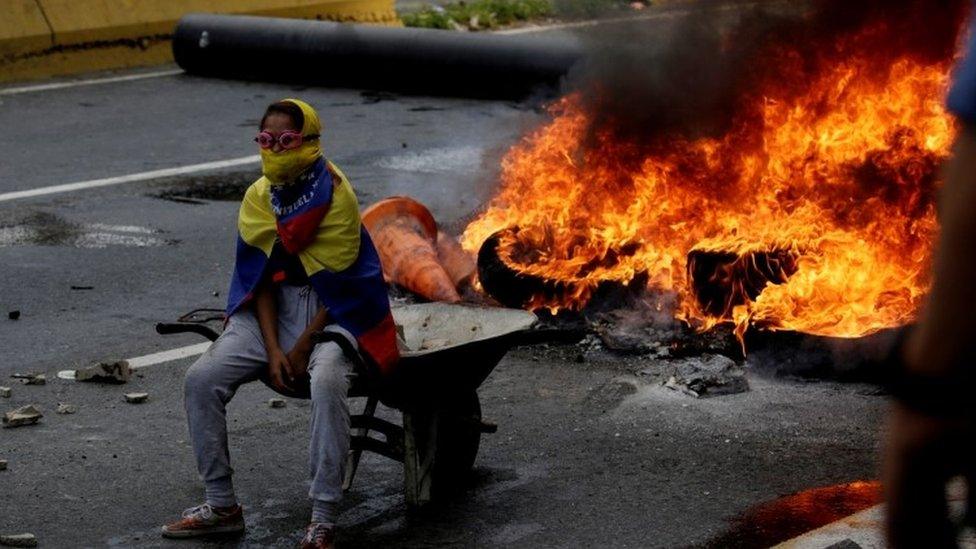
- Published22 April 2017
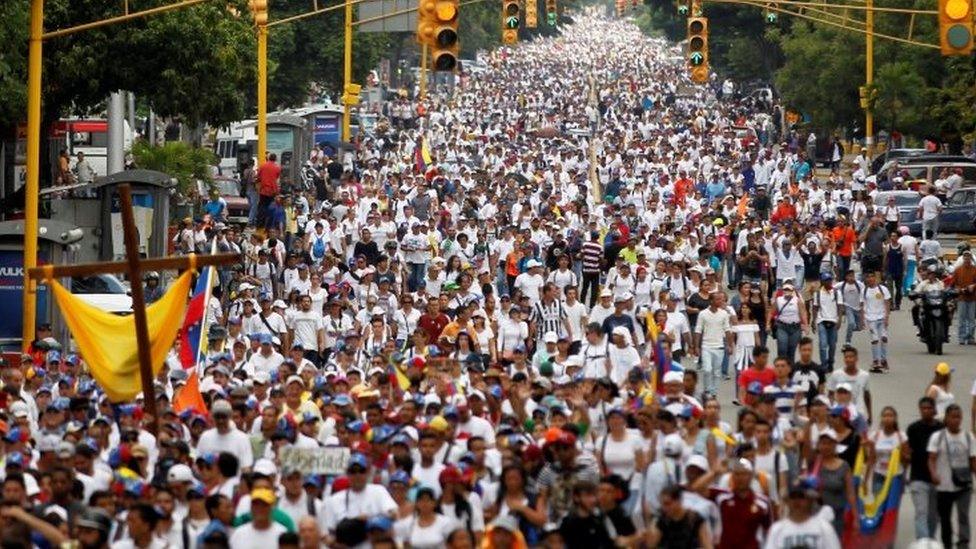
- Published21 April 2017
